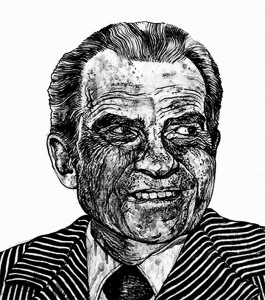You are herecontent / Richard Nixon’s Darkest Secret
Richard Nixon’s Darkest Secret
Exclusive: In just-released Watergate grand jury testimony from 1975, ex-President Richard Nixon complained that his 1968 campaign was bugged by the Johnson administration. But there was little curiosity then – or now – as to why that surveillance was justified, reports Robert Parry.
By Robert Parry
Thirty-six years ago, as former President Richard M. Nixon dodged grand jury questions about his illegal wiretapping of political enemies, he briefly referenced a dark secret about his 1968 campaign’s sabotaging of Vietnam War peace talks, actions which President Lyndon Johnson at the time privately labeled “treason.”
Without providing that historical context, Nixon complained that he and his 1968 campaign had been victims of surveillance and wiretapping, too, as he tried to persuade Watergate prosecutors and the grand jury that bugging opponents was just part of hardball politics.
“In 1968, for example, we learned that not only was … Vice President [-ial nominee Spiro] Agnew’s plane under surveillance, and he himself was under surveillance by the FBI, but that the FBI was at one point directed to bug my plane,” Nixon said, according to secret grand jury transcripts released by the National Archives on Thursday.
During that testimony on June 23, 1975, the prosecutors failed to follow up on his reference to the 1968 bugging, such as why it would be ordered. And after the transcripts were released this week, the major U.S. news media also missed the comment’s significance.
The evidence of Nixon’s sabotage of the 1968 Vietnam peace talks is now overwhelming – including diplomatic cable traffic and contemporaneous audiotapes of Johnson discussing the Republican promises to South Vietnamese President Nguyen van Thieu of a better deal if he boycotted negotiations in Paris.
- Login to post comments
-

- Email this page
- Printer-friendly version







